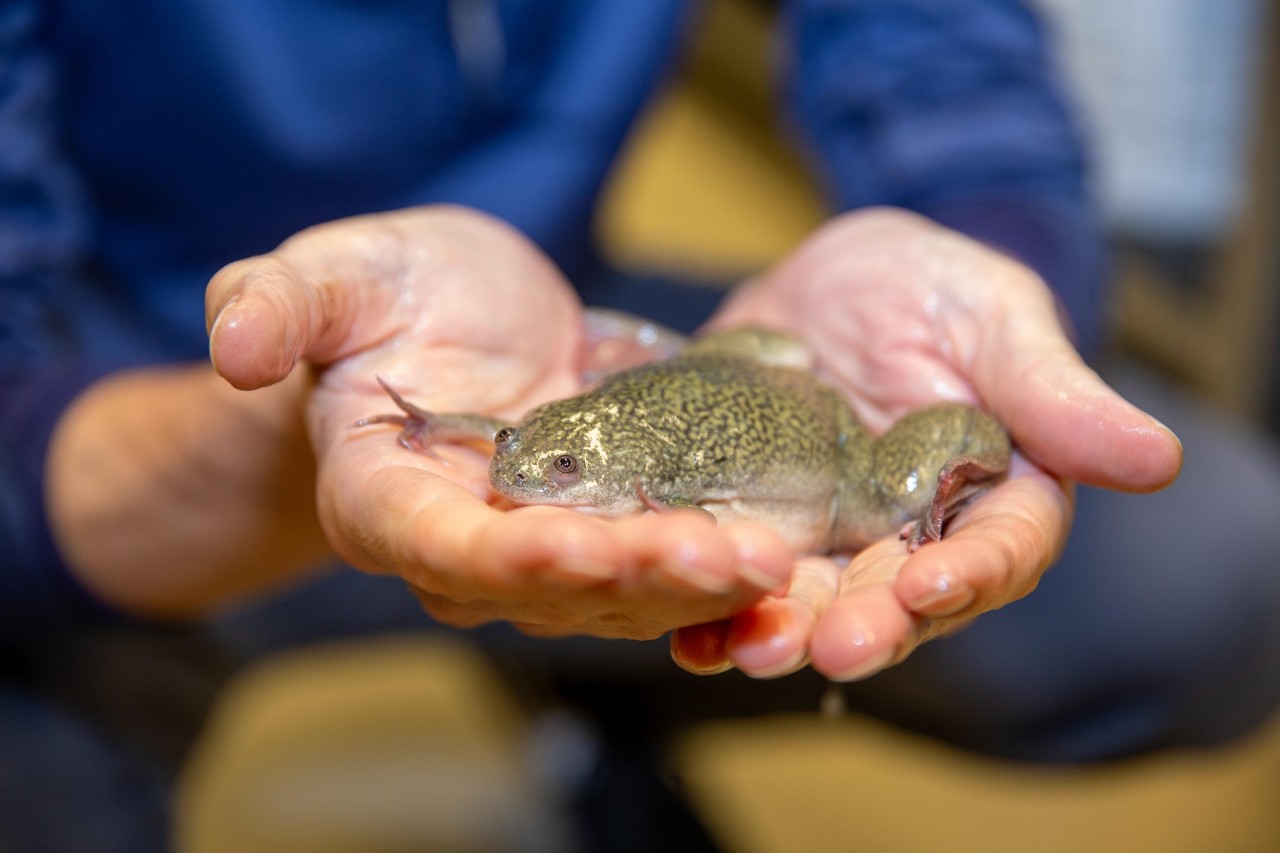
Chemical messages turn tadpoles into frogs, toads
UC biologist examines the role hormones play in metamorphosis
The Billings Gazette highlighted a University of Cincinnati project examining the hormones responsible for the growth and development of frogs.
UC College of Arts and Sciences Professor Daniel Buchholz and his students are using the gene-editing tool CRISPR to understand the roles hormones play in a tadpole's dramatic metamorphosis into a frog or toad.
“Their immune system changes. Their hemoglobin changes. Even their eye pigment changes,” Buchholz said. “That’s why frog metamorphosis is a really good model to study hormones and development. It has such a dramatic effect.”
Students are studying African clawed frogs, an animal scientists use as a model system. Buchholz cares for more than 300 of them in various tanks in his lab.
Chemical signals from hormones play a major role in our own growth and development along with regulating processes like our immune system.
“The more we can learn about frogs, the more we can learn about ourselves. And those are compelling reasons to study animals,” Buchholz said.
Read the Billings Gazette story.
Featured image at top: UC Professor Daniel Buchholz is studying the hormones that regulate metamorphosis in frogs. Photo/Andrew Higley/UC Marketing + Brand

The Billings Gazette highlighted UC biology Professor Daniel Buchholz's research into the hormones that trigger metamorphosis. llustration/John Potter/Billings Gazette
Related Stories
Wired: Is psychedelic therapy bubble about to burst?
September 9, 2022
UC postdoctoral researcher Nese Devenot talks to Wired magazine about challenges facing psychedelic therapies.
Psychedelic research renaissance
August 16, 2022
Psychedelics such as LSD, psilocybin and MDMA are gaining increasing attention in scientific and medical circles because of the potential they hold for treating anxiety disorders and emotional trauma. UC's Nese Devenot explains why psychedelics are seeing a research renaissance.
NatGeo: UC discoveries featured in new series on ancient Maya
March 25, 2024
UC's research on the ancient Maya in Tikal is featured in a new National Geographic series called "The Rise and Fall of the Maya."
